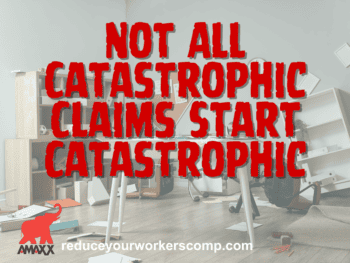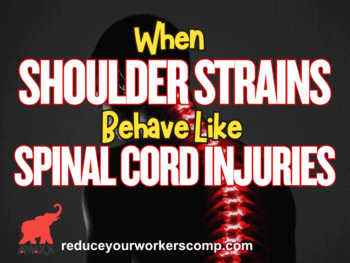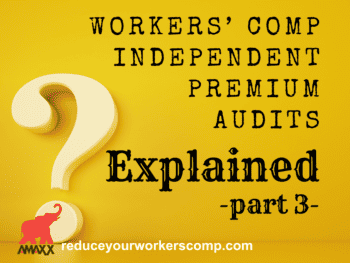Employer Files Contain Most Useful Information
A comp board, and carrier, can only deal with facts they know. What is not known is dealt with by presumptions, nearly always resolved in favor of a worker. The largest source of useful info is in the employer’s files – where it nearly always remains, silent and drawing no attention to itself.
Facts are totally impersonal and indifferent to whether or not they are invited to work comp hearings. If they are overlooked, ignored, unmentioned or regarded is irrelevant only the employer will pay if those approaches are wrong. A fortuitous discovery yesterday illustrates this.
Prior Unemployment Claims Are Common
Have you, as an employer, ever had an unemployment claim by a worker with a terminally anti-social attitude? Did you win the bitter, hard fought claim for unemployment benefits? Did you think that was the end of it, only to be faced with a claim for work comp? Many employers have.
But did you notify the comp board and the carrier, with supporting documentation, of the older UI claim and its outcome? If not, your performance has been typical. Few employers do, and few are asked about prior UI claims.
Yesterday, this writer was doing routine research of a 1985 NY comp decision through google. The name of the case, never mind what it was, unexpectedly produced not one, but THREE cases with the same name, one in 1985, but two in the early 1970s, which were not comp decisions, but UI.
The 1985 decision is useful for claims that require a worker’s signed release, especially where the worker refuses to provide one. The case involved a worker who, for undisclosed reasons, simply refused to provide a post-injury IRS return.
Yesterday, the two earlier UI decisions provided the answers. The worker had been, to put it politely, simply impossible to abide. His battles for UI, after being dismissed, did not change that impression. He lost…….and then filed a comp claim.
He won the comp claim, seemingly without much effort, but when the carrier tried to get documentation of post-injury earnings it met with a stone wall of unexplained resistance.
You Need To Ask
What is disturbing is that the decision strongly points to the fact that even at that point in the proceedings the carrier, the board, and later the court, were unaware of the prior two reported UI decisions. There is an old joke involving a 35 year old, believed to be a mute, who suddenly speaks. When relatives say, “We never knew you could speak”, he answers, “You never asked.”
Had the carrier known of the prior history, the outcome almost certainly would have prevented the claim from being allowed in the first place.
There are many, many claims which fit the above pattern. Wherever there is a claim in which there were prior applications for other benefits, or complaints such as harassment and/or discrimination, inform the board and carrier, and include a copy of any determinations. Do not be mute.
Author: Attorney Theodore Ronca is a practicing lawyer from Aquebogue, NY. He is a frequent writer and speaker, and has represented employers in the areas of workers’ compensation, Social Security disability, employee disability plans and subrogation for over 30 years. Attorney Ronca can be reached at 631-722-2100. medsearch7@optonline.net
Editor Michael B. Stack, CPA, Director of Operations, Amaxx Risk Solutions, Inc. is an expert in employer communication systems and part of the Amaxx team helping companies reduce their workers compensation costs by 20% to 50%. He is a writer, speaker, and website publisher. www.reduceyourworkerscomp.com. Contact: mstack@reduceyourworkerscomp.com.
©2012 Amaxx Risk Solutions, Inc. All rights reserved under International Copyright Law.



























